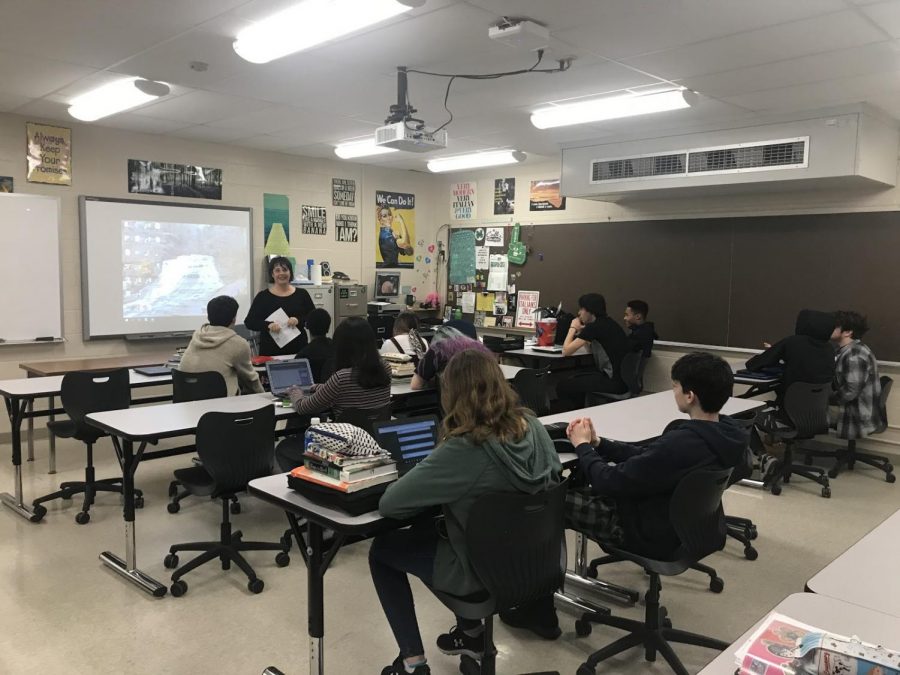Opinion: Public speaking classes vital for students
Hello, My Name Is… Ms. Jennifer Cioffi talks to her class about making effective speeches in her Communications class.
February 14, 2020
Implementing more public speaking classes would help students in the long run. Since no matter what field someone goes into, talking is a part of one’s day-to-day life.
In every aspect of life one has to know how to communicate with people effectively, according to Communications teacher Nick Somich. He said, “I don’t know of any job that exists where you don’t have to be able to represent yourself in a verbal way so I think this class allows kids to become more familiar with how to speak well [and] how to interact well with your peers and adults.”
No matter where one is in the world, being able to effectively articulate your opinions is of importance. The government of Queensland Australia website said, “Verbal communication can bring great rewards to your organisation when carried out successfully, but it can also be hazardous to your business when approached the wrong way.”
Jennifer Cioffi, a veteran Communications teacher, thinks confronting stage fright is the biggest hurdle for students in this class. She said, “You get a kid who is just afraid to do this and the challenge, of course, is to tell them, ‘This is a safe place for you to try this, it’s a safe place for you to try. Even if you make mistakes we’ll work through it together’.”
Abby Coffin is a junior who took Communications her sophomore year who feels that having to be able to communicate with people is never going to stop being a necessity. Coffin said, “I think [Communications] really helps because public speaking is never going to go away. It’s always something you have to do so for a teacher to have a class about that is really good.”
Giving oneself a voice not only helps with speaking but also helps with confidence overall. Somich said, “We all get nervous, we all say ‘Oh I don’t want to talk to that person right now, oh I don’t want to talk about that subject right now,’ but if you become more comfortable with being uncomfortable – and that’s really hard to fathom – you are able to tackle more things.”
Zakaria Ihiri, a senior who took AP Seminar his junior year feels that public speaking is important for everyone. Ihiri said, “It prepares [students] for the future because in future careers, you need to be able to speak and have those skills in order to be successful in life.”
Knowing what activities and speeches help improve students’ speaking the most is also important in order to keep the effectiveness of the class. Cioffi said, “Mr. Somich talked me into the lip syncing [assignment]. I was not in favor of that at first but he said, ‘Ciof, just give it a try,’ so I went for it I said, ‘Ok we’ll see what happens’ and I’m so glad that I did because if you can do lip syncing in front of a group of your peers, what can’t you do?”
Somich said he’s impressed every year by the impact of the job interview presentation. He said, “Of all of [the assigned presentations] the job interview is the one that the kids come back and say ‘Thank you because I’m already getting a summer job or a part time job and I didn’t realize I could. I didn’t realize that I was competent or comfortable enough to interview’.”
In any area of work, being able to communicate with one’s coworkers or higher-ups is vital for workplace progression. Michael Page said, “Employers who invest time and energy into delivering clear lines of communication will rapidly build trust amongst employees, leading to increases in productivity, output, and morale in general.”
Making sure that one is able to communicate with others is a school skill, a job skill, a life skill. Communications is a course that is available to all students grades 10 through 12 over the summer or during the academic school year.






















































